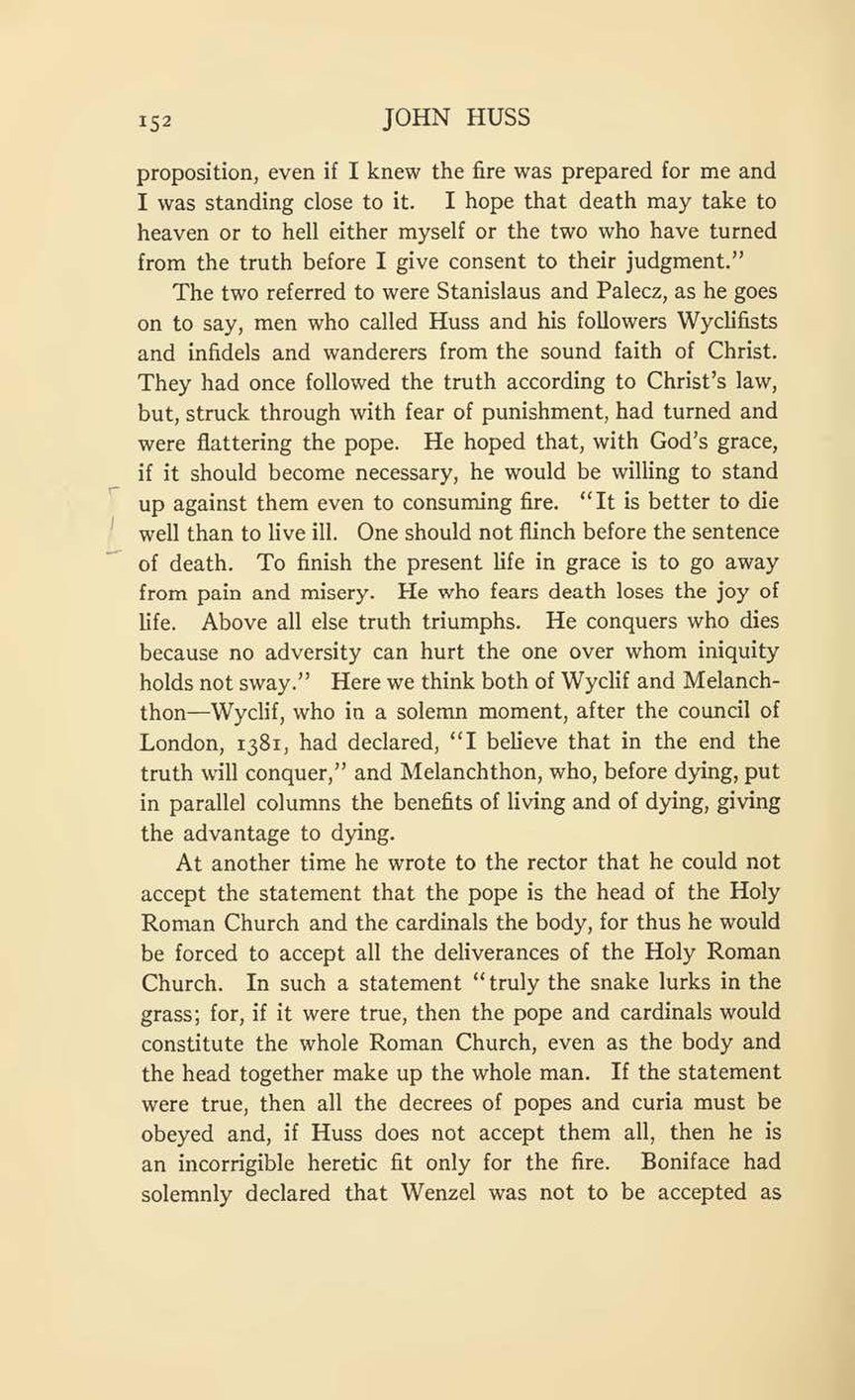proposition, even if I knew the fire was prepared for me and I was standing close to it. I hope that death may take to heaven or to hell either myself or the two who have turned from the truth before I give consent to their judgment.”
The two referred to were Stanislaus and Palecz, as he goes on to say, men who called Huss and his followers Wyclifists and infidels and wanderers from the sound faith of Christ. They had once followed the truth according to Christ’s law, but, struck through with fear of punishment, had turned and were flattering the pope. He hoped that, with God’s grace, if it should become necessary, he would be willing to stand up against them even to consuming fire. “It is better to die well than to live ill. One should not flinch before the sentence of death. To finish the present life in grace is to go away from pain and misery. He who fears death loses the joy of life. Above all else truth triumphs. He conquers who dies because no adversity can hurt the one over whom iniquity holds not sway.” Here we think both of Wyclif and Melanchthon—Wyclif, who in a solemn moment, after the council of London, 1381, had declared, “I believe that in the end the truth will conquer,” and Melanchthon, who, before dying, put in parallel columns the benefits of living and of dying, giving the advantage to dying.
At another time he wrote to the rector that he could not accept the statement that the pope is the head of the Holy Roman Church and the cardinals the body, for thus he would be forced to accept all the deliverances of the Holy Roman Church. In such a statement “truly the snake lurks in the grass; for, if it were true, then the pope and cardinals would constitute the whole Roman Church, even as the body and the head together make up the whole man. If the statement were true, then all the decrees of popes and curia must be obeyed and, if Huss does not accept them all, then he is an incorrigible heretic fit only for the fire. Boniface had solemnly declared that Wenzel was not to be accepted as
